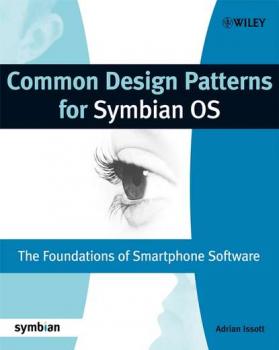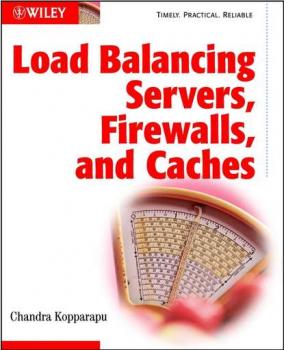ОС и Сети
Различные книги в жанре ОС и СетиMicrosoft Windows Server Administration Essentials
The core concepts and technologies you need to administer a Windows Server OS Administering a Windows operating system (OS) can be a difficult topic to grasp, particularly if you are new to the field of IT. This full-color resource serves as an approachable introduction to understanding how to install a server, the various roles of a server, and how server performance and maintenance impacts a network. With a special focus placed on the new Microsoft Technology Associate (MTA) certificate, the straightforward, easy-to-understand tone is ideal for anyone new to computer administration looking to enter the IT field. Each chapter offers a clear and concise look at the core Windows administration concepts you need to know to gain an understanding of these difficult topics. Offers a clear, no-nonsense approach to administering a Windows operating system and presents it in such a way that IT beginners will confidently comprehend the subject matter Targets the MTA 98-365 exam by covering Windows Server installation, server roles, storage, and active directory infrastructure Provides you with a solid foundation of various networking topics so that you can gain a strong understanding of Windows Server administration concepts Includes review questions and suggested labs to further enhance your learning process With this book by your side, you will be armed with the core concepts and technologies needed to administer a Windows Server operating system.
Cisco Networking All-in-One For Dummies
A helpful guide on all things Cisco Do you wish that the complex topics of routers, switches, and networking could be presented in a simple, understandable presentation? With Cisco Networking All-in-One For Dummies, they are! This expansive reference is packed with all the information you need to learn to use Cisco routers and switches to develop and manage secure Cisco networks. This straightforward-by-fun guide offers expansive coverage of Cisco and breaks down intricate subjects such as networking, virtualization, and database technologies into easily digestible pieces. Drills down complex subjects concerning Cisco networking into easy-to-understand, straightforward coverage Shares best practices for utilizing Cisco switches and routers to implement, secure, and optimize Cisco networks Reviews Cisco networking solutions and products, securing Cisco networks, and optimizing Cisco networks Details how to design and implement Cisco networks Whether you're new to Cisco networking products and services or an experienced professional looking to refresh your knowledge about Cisco, this For Dummies guide provides you with the coverage, solutions, and best practices you need.
OFDM-Based Broadband Wireless Networks
OFDM-based Broadband Wireless Networks covers the latest technological advances in digital broadcasting, wireless LAN, and mobile networks to achieve high spectral efficiency, and to meet peak requirements for multimedia traffic. The book emphasizes the OFDM modem, air-interface, medium access-control (MAC), radio link protocols, and radio network planning. An Instructor Support FTP site is available from the Wiley editorial department.
Handbook of Wireless Networks and Mobile Computing
The huge and growing demand for wireless communication systems has spurred a massive effort on the parts of the computer science and electrical engineering communities to formulate ever-more efficient protocols and algorithms. Written by a respected figure in the field, Handbook of Wireless Networks and Mobile Computing is the first book to cover the subject from a computer scientist's perspective. It provides detailed practical coverage of an array of key topics, including cellular networks, channel assignment, queuing, routing, power optimization, and much more.
Symbian OS C++ for Mobile Phones
The ultimate developer's guide to Symbian OS C++ programming. Programming Symbian OS is a key skill for mass market phone application development. Whether you are developing applications and services for shipping mobile phones, or involved in pre-market mobile phone development, this book will help you understand the fundamental theory behind developing Symbian OS C++ code for constrained devices. A collaborative book, incorporating the expertise of over 30 Symbian engineers Comprehensive coverage of Symbian OS suitable for programming Nokia and Sony Ericsson systems and any Symbian OS v7.0 based smartphone Also provides supporting material for Symbian OS v6.0 and v6.0 phones Accompanying CD includes demo version of Metrowerks toolchain for the P800
Common Design Patterns for Symbian OS
Common Design Patterns for Symbian OS is the first design patterns book that addresses Symbian OS specifically. It introduces programmers to the common design patterns that help implement a large variety of applications and services on Symbian OS. The goal of the book is to provide the experience of Symbian's developers to a wider audience and enable sophisticated programs to be quickly written and to a high standard. In order to do this, it: Provides patterns based on the Symbian OS architectural elements Describes how patterns suited for non-mobile software should be adapted or even avoided for Symbian OS Provides Symbian OS based examples and code illustrations Each chapter covers patterns that address specific key concern experienced by developers: memory performance, time performance, power performance, security and responsiveness. This book is not specific to any particular version of Symbian OS. While individual examples may come from one version or another the patterns outlined in this book are intended to be more generic and based on the common functionality available in all releases. Where possible the examples given for the design patterns will directly reflect the software in Symbian OS. Common Design Patterns for Symbian OS is intended to be used in conjunction with one or more SDKs for specific Symbian OS phones and with the resources available at the Symbian DevNet web site. This facility will provide the background material needed to help understand the patterns and the examples accompanying them.
Concurrent and Distributed Computing in Java
Concurrent and Distributed Computing in Java addresses fundamental concepts in concurrent computing with Java examples. The book consists of two parts. The first part deals with techniques for programming in shared-memory based systems. The book covers concepts in Java such as threads, synchronized methods, waits, and notify to expose students to basic concepts for multi-threaded programming. It also includes algorithms for mutual exclusion, consensus, atomic objects, and wait-free data structures. The second part of the book deals with programming in a message-passing system. This part covers resource allocation problems, logical clocks, global property detection, leader election, message ordering, agreement algorithms, checkpointing, and message logging. Primarily a textbook for upper-level undergraduates and graduate students, this thorough treatment will also be of interest to professional programmers.
Load Balancing Servers, Firewalls, and Caches
From an industry insider–a close look at high-performance, end-to-end switching solutions Load balancers are fast becoming an indispensable solution for handling the huge traffic demands of the Web. Their ability to solve a multitude of network and server bottlenecks in the Internet age ranges from dramatic improvements in server farm scalability to removing the firewall as a network bottleneck. This book provides a detailed, up-to-date, technical discussion of this fast-growing, multibillion dollar market, covering the full spectrum of topics–from server and firewall load balancing to transparent cache switching to global server load balancing. In the process, the author delivers insight into the way new technologies are deployed in network infrastructure and how they work. Written by an industry expert who hails from a leading Web switch vendor, this book will help network and server administrators improve the scalability, availability, manageability, and security of their servers, firewalls, caches, and Web sites.
Smartphone Operating System Concepts with Symbian OS
Smartphone Operating System Concepts with Symbian OS uses Symbian OS as a vehicle to discuss operating system concepts as they are applied to mobile operating systems.It is this focus that makes this tutorial guide both invaluable and extremely relevant for today's student.In addition to presenting and discussing operating system concepts, this book also includes exercises that compare and contrast Symbian OS, Unix/Linux and Microsoft Windows. These assignments can be worked on in a classroom laboratory or in a student's own time. The book is replete with examples (both conceptual and applied to handhelds) as well as: * Summaries at the end of each chapter. * Problems the students can do as homework. * Experiment-oriented exercises and questions for students to complete on a handheld device * A reading list, bibliography and a list of sources for handheld software It also contains a series of on-line laboratories based on the software developed for Symbian OS devices. Students can perform these labs anywhere, and can use printing and e-mail facilities to construct lab write-ups and hand in assignments. Students, for the first time, will be taught Symbian OS concepts so that they can start developing smartphone applications and become part of the mass-market revolution.
Rapid Mobile Enterprise Development for Symbian OS
A guide to programming Symbian OS smartphones using OPL (The Open Programming Language): a simple to learn, open-source scripting language, ideal for fast-track development of enterprise applications. This book provides a hands-on development environment for both the experienced and aspiring programmer, demonstrating the ease of use of Symbian OS technologies through the utilization of OPL. OPL has a shallow learning curve which allows bespoke corporate tools to be developed in house by technical staff who aren’t necessarily trained programmers. Rapid Mobile Enterprise Development For Symbian OS provides a clear guide on both how to program, and understanding the structure of the language through a keyword dictionary. Any bespoke OPL application can grow with a company, eventually providing access to more advanced C++ code through OPX extensions. From the home programmer who wants to do more with their phone, to the enterprise developer, Rapid Mobile Enterprise Development For Symbian OS is the ideal starting point for simple, innovative application design using OPL. Source code is available from www.symbian.co.uk/books









